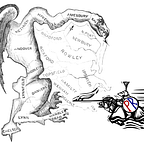Voting theory terminology: my stances
This is an article about why I use the terms I do when discussing voting theory. I may, in the future, add more sections, but if I do, I’ll note changes and dates.
“Voting theory” and “election science” are synonyms
These are both terms for the field as a whole.
I say “electoral system”, but I think “voting method”
What is the subject matter for voting theory/election science? There are two parts: the abstract algorithms and their real-world implementations. For instance, in Ireland, the abstract algorithm for electing the Dáil Éireann (lower house) is a version of STV; but the real-world implementation includes many things beyond STV, such as voter and candidate eligibility rules, election calendars, ballot formats, and even arguably the fact that there is a lower and upper legislative house and the overall system is parliamentary.
In my mind, the term “electoral system” best corresponds to both of those aspects together. For instance, the company “Election Systems and Software” makes physical machines, part of the implementation side, not the abstract algorithm side.
“Voting method”, on the other hand, clearly refers to just the abstract algorithm. For instance, that’s how it’s defined in the Stanford Encyclopedia of Philosophy.
Nevertheless, even when I’m talking about just the abstract algorithm, I have decided I’ll still use “electoral system”. That’s because these terms are shibboleths: people judge you by what jargon you use.
You see, voting theory has its share of cranks. It’s easy to invent electoral systems, and some people make bad ones. Worse, there are some people who make obviously-wrong assertions about the systems/methods they invent, and who won’t back down when you point that out.
Broadly speaking, there are two communities in voting theory: professional political scientists, and amateurs. The political scientists don’t have a monopoly on the truth; on the contrary, in many senses many amateurs are ahead of most political scientists. But on the other hand, most of the worst cranks out there are amateurs, because serious cranks can’t pass all the hurdles to getting a poli sci degree.
The term “electoral system” comes from political scientists, while “voting method” comes mostly from the amateur community. So some political scientists use a lazy heuristic that anybody who says “voting method” is a crank. They’re wrong to do so; but that’s not a hill I want to die on.
In summary: in my head, I make the distinction between “voting methods”, which are solely algorithms, and “electoral systems”, which also include implementation. But, in order to sound more professional, I’m willing to use “electoral systems”.
It’s “Multi-seat districts”, not “multi-member …”
Traditionally, political scientists have used both terms, but preferred the term “multi-member”. But I’ve seen even the most experienced people get tongue-tied when contrasting “multi-member” with “mixed-member”, two entirely different types of proportional representation systems. To avoid this confusion, it’s easy to just say “multi-seat” (and “single-seat”). And unlike the above, this does not seem to be a shibboleth; though “seat” is less common than “member” in the poli sci literature, both are well-established and entirely ordinary.
(to be continued, as I come across additional terms I want to explain…)
